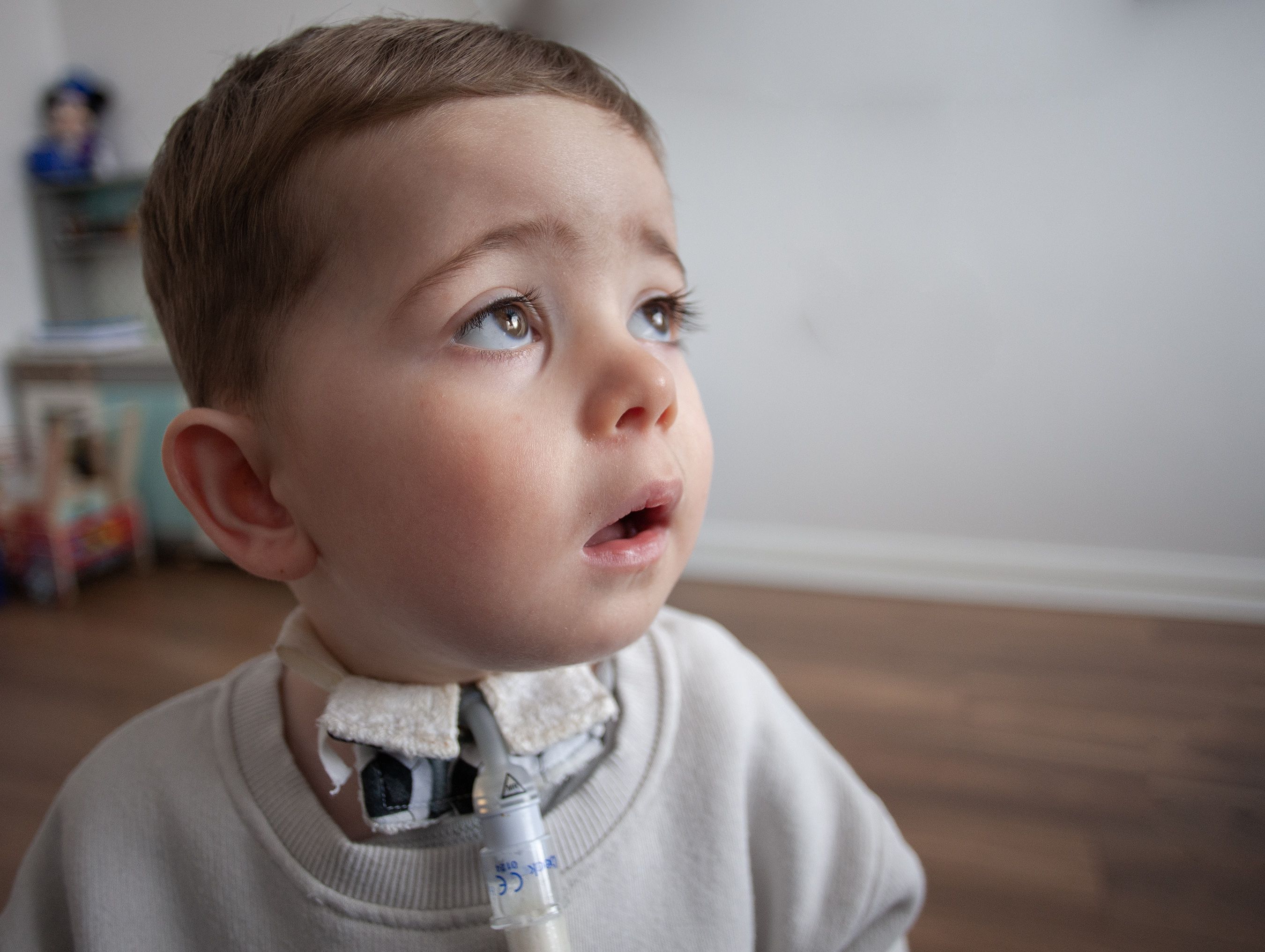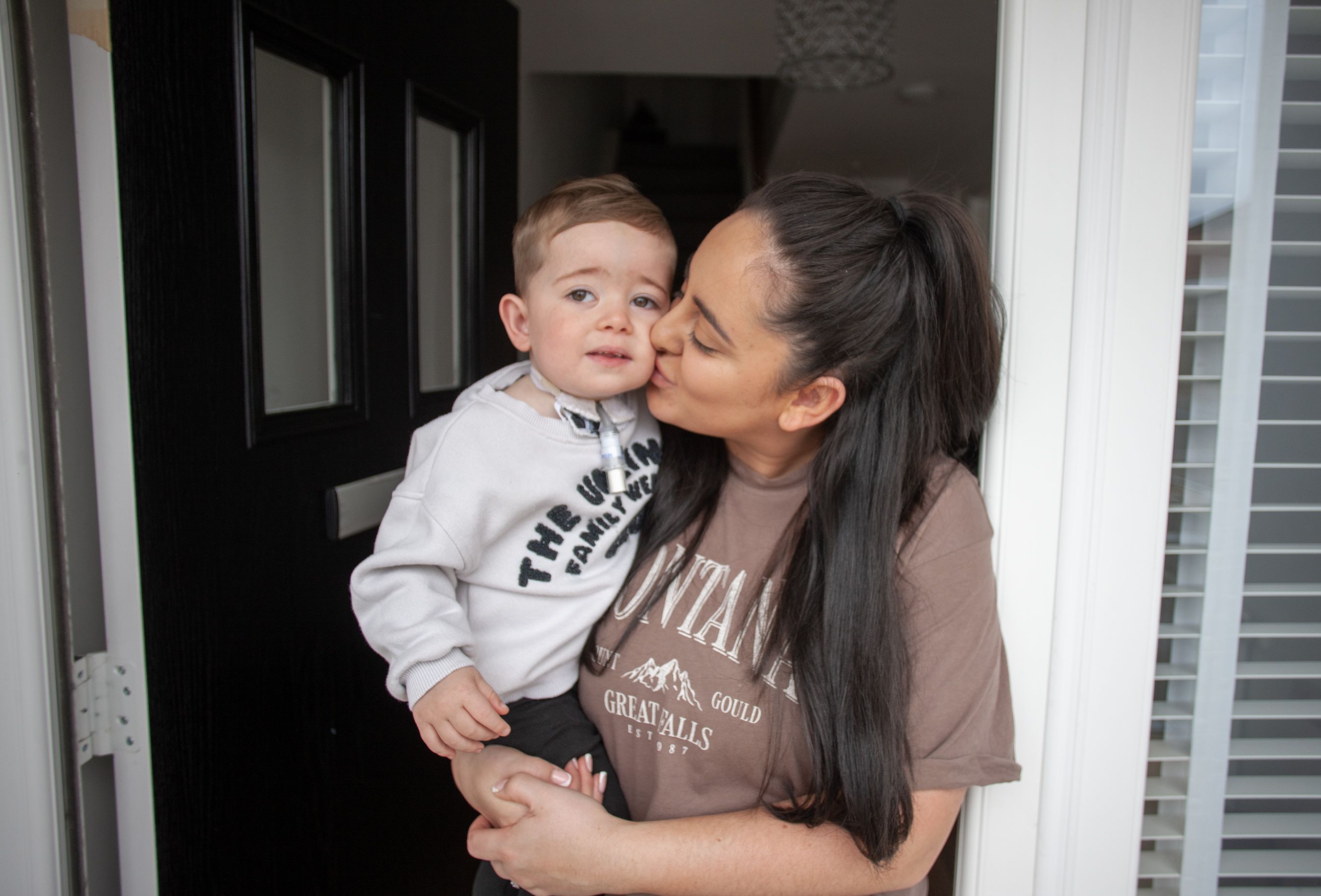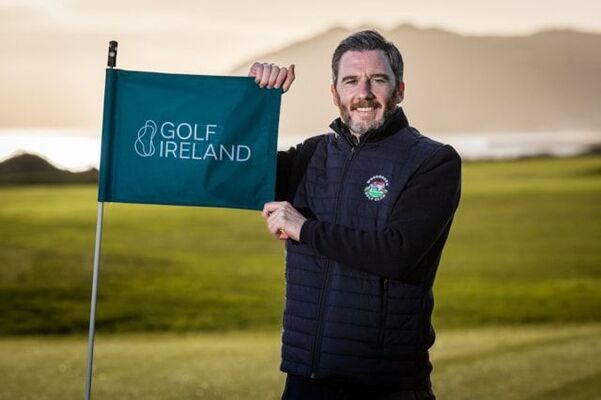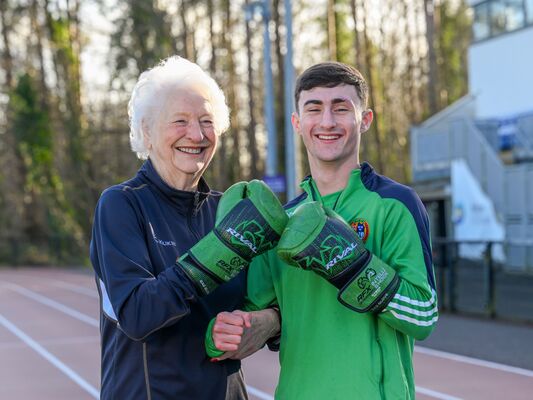A YOUNG West Belfast mum has launched an awareness campaign after her son was born with an extremely rare condition affecting his breathing and speech.
Niamh O’Neill gave birth to her son Ríogán in the Ulster Hospital in Dundonald in 2021. The pregnancy was completely normal with no sign to alert her and partner Niall to any problem.
But Ríogán was born with bilateral vocal cord paralysis – a very rare condition causing an inability to move both vocal cords which causes difficulties with breathing and speech. The condition occurs in around one in a million global births each year.
Niamh told the Andersonstown News how the couple's world was turned upside down just a few hours after Ríogán's birth.
“My pregnancy was perfect, completely smooth sailing, everything was great, no sickness at all and he went the full term," said Niamh.
“The only issue I had was when I had a scan just a few weeks before he was born and that led the doctors to believe that he was underweight, so I was brought in to be induced. But symptoms were not something that appeared at all during the pregnancy.
“We thought everything was perfect when he was born, we were face-timing family and showing him off and nothing seemed out of the ordinary until we heard him attempt to breathe and it just sounded strange. Initially they (medical staff) thought it was no big issue. The nurses were more concerned about myself actually because of the amount of blood I lost just after giving birth. But I was really just concerned about Ríogán and I could tell he wasn’t right.”
Niamh said nurses at first thought it was a straightforward mucus issue, but when she woke up from a sleep to find herself surrounded by multiple medical staff she realised there was a problem with her baby.
“I woke up and there seemed to be a thousand people in the room watching my baby and that’s when I realised something wasn’t right," she said.
And when Niamh learned she was to be transferred from the Ulster to the RVH, her fears that it might be something serious were confirmed.
“When the high doctor said about transferring me across to the Royal, it scared me because I didn’t know why and also I couldn’t go with him.
“We didn't learn what the issue was until three days after his birth. He had a scope and he was diagnosed with the condition bilateral vocal cord paralysis. Initially, Ríogán was considered a 'mild case'.”
It wasn’t until Ríogán began to struggle to breathe after being brought home and was brought back to hospital that the extent of his illness became apparent.
“He was on a ventilator and was sedated at just a few weeks old. It was a really scary experience, but they explained the benefits of fitting a device to his trachea which would prevent us having more scares like the one we'd had,” said Niamh.
“I was in complete denial at the beginning because I knew the device completely took away his noise and sound. I didn’t want that for my baby, especially because he was okay at the start. He couldn’t even make a crying noise to let us know what was wrong, whether it was a new nappy he needed or food, because he would go blue in the face trying to make the noise. That’s when I came round and knew that it was the only course of action."
Riogán was diagnosed at just 4 weeks old and his trachea is part of the norm
For the first year of his life Ríogán had to be kept under 24-hour surveillance by his parents and medical staff.
“We had a team of night nurses who all helped us in the best way to take care of him in the first year or so of him being home.”
But now things are looking up for little Ríogán, who's started to vocalise after being fitted with a speaking valve and his parents are looking forward to him beginning his early education.
“He is getting better every single day," said Niamh. "Since he got fitted with a speaking valve he can make small noises and I am hopeful that by the time he is old enough to start school he will be able to actually speak and communicate.”
Niamh and Niall are introducing Ríogán to the sign language 'Makaton' to assist with his communication as he gets bigger.
“Bilateral vocal cord paralysis is so rare that you cannot determine what will happen. If he hasn’t improved by the age of five, he may have to be taken in for surgery to help improve his speaking issues. At the minute we are trying to teach him to use Makaton sign language which will help him show other people through movements and signals whether he is hungry, thirsty or tired. Hopefully it allows us to put him into a day care programme next year and get him prepared for school in a few years’ time. Others will be able to learn to understand him if he needs something and it would also make me feel so much more comfortable in letting him out of my sight.”
Niamh has set up an Instagram page in order to raise awareness and to help inspire other children and parents who are living with the same condition. The page can be found on Instagram via the tagline @mytrachejourney and it gives regular updates on one-in-a-million Ríogán’s brave battle.








